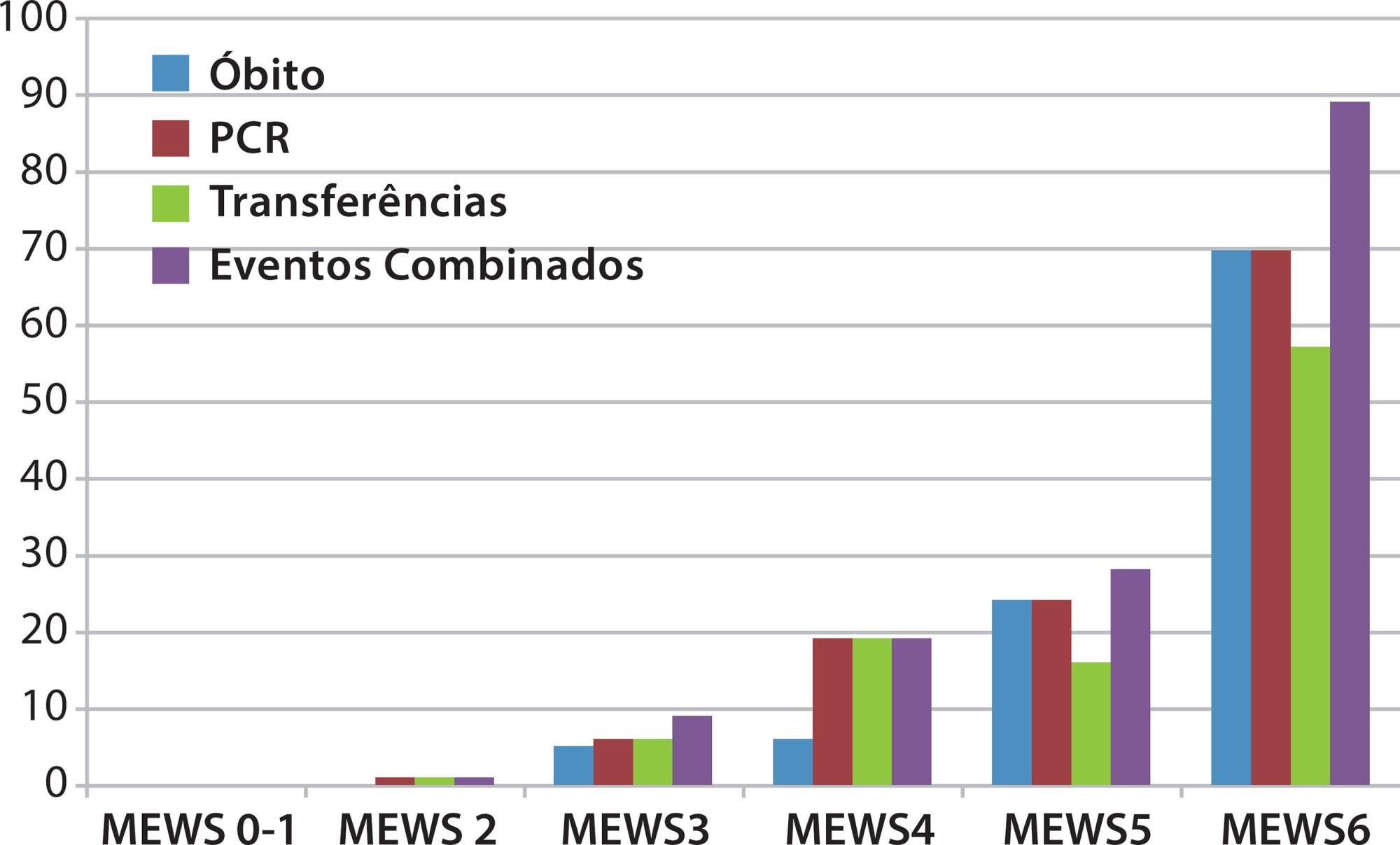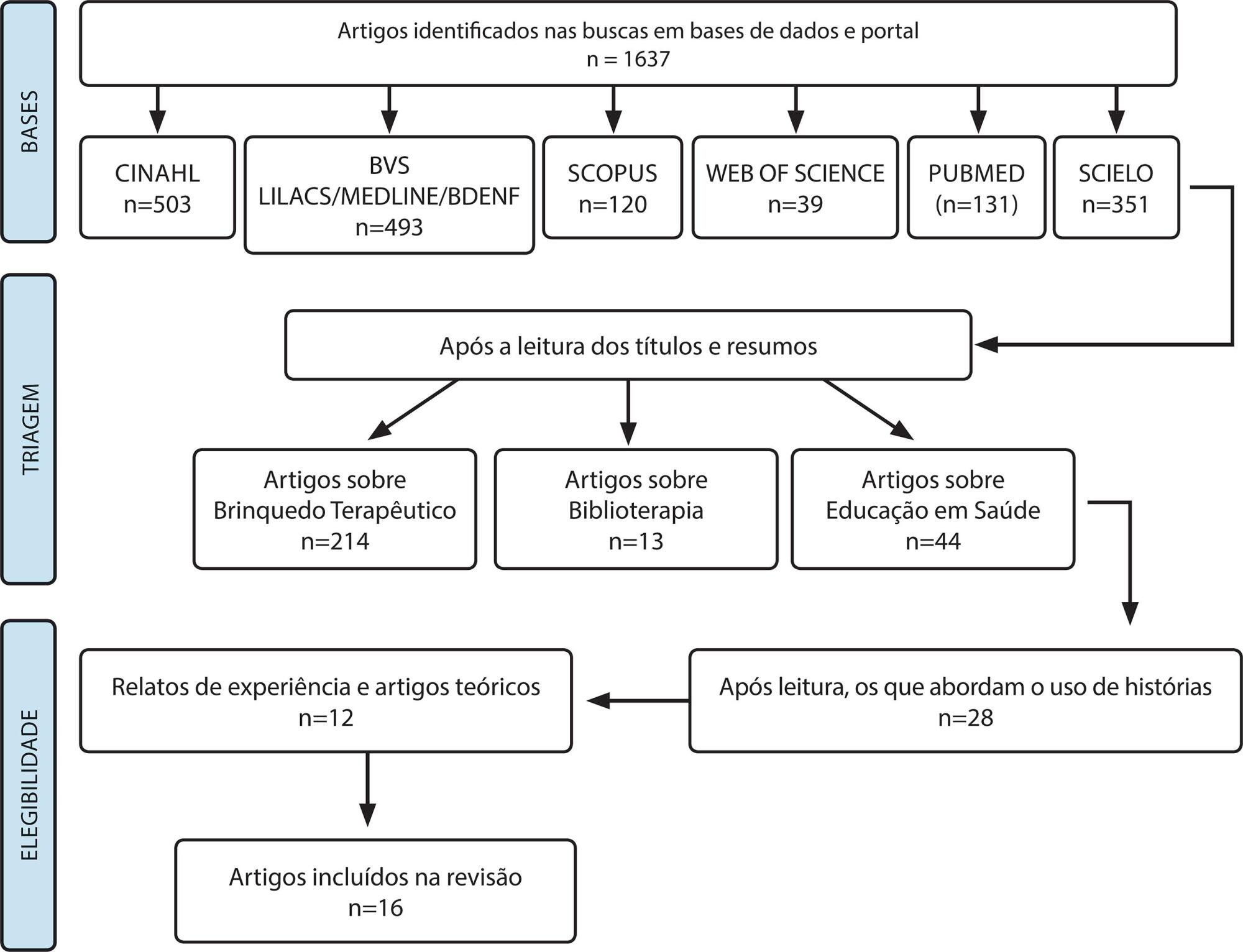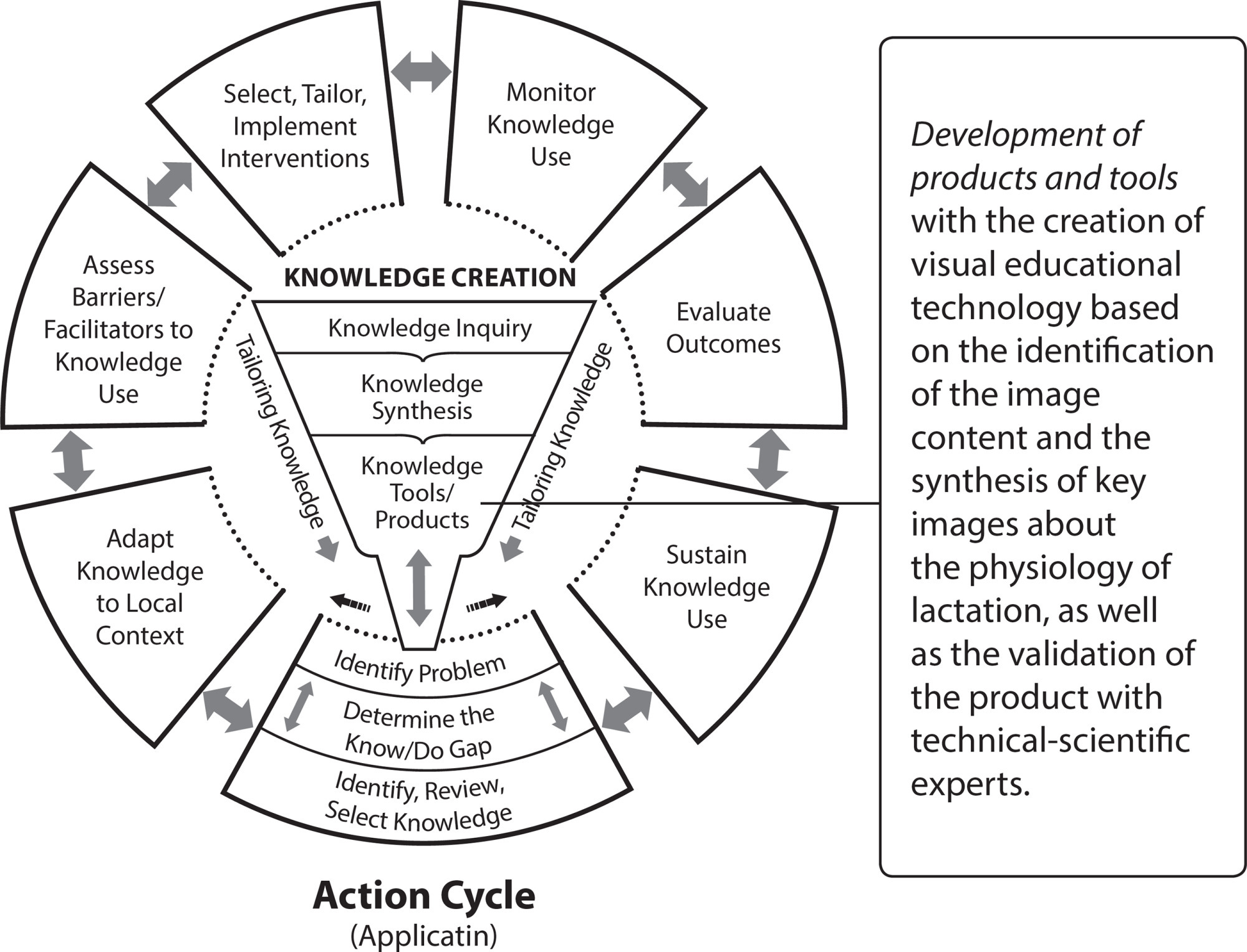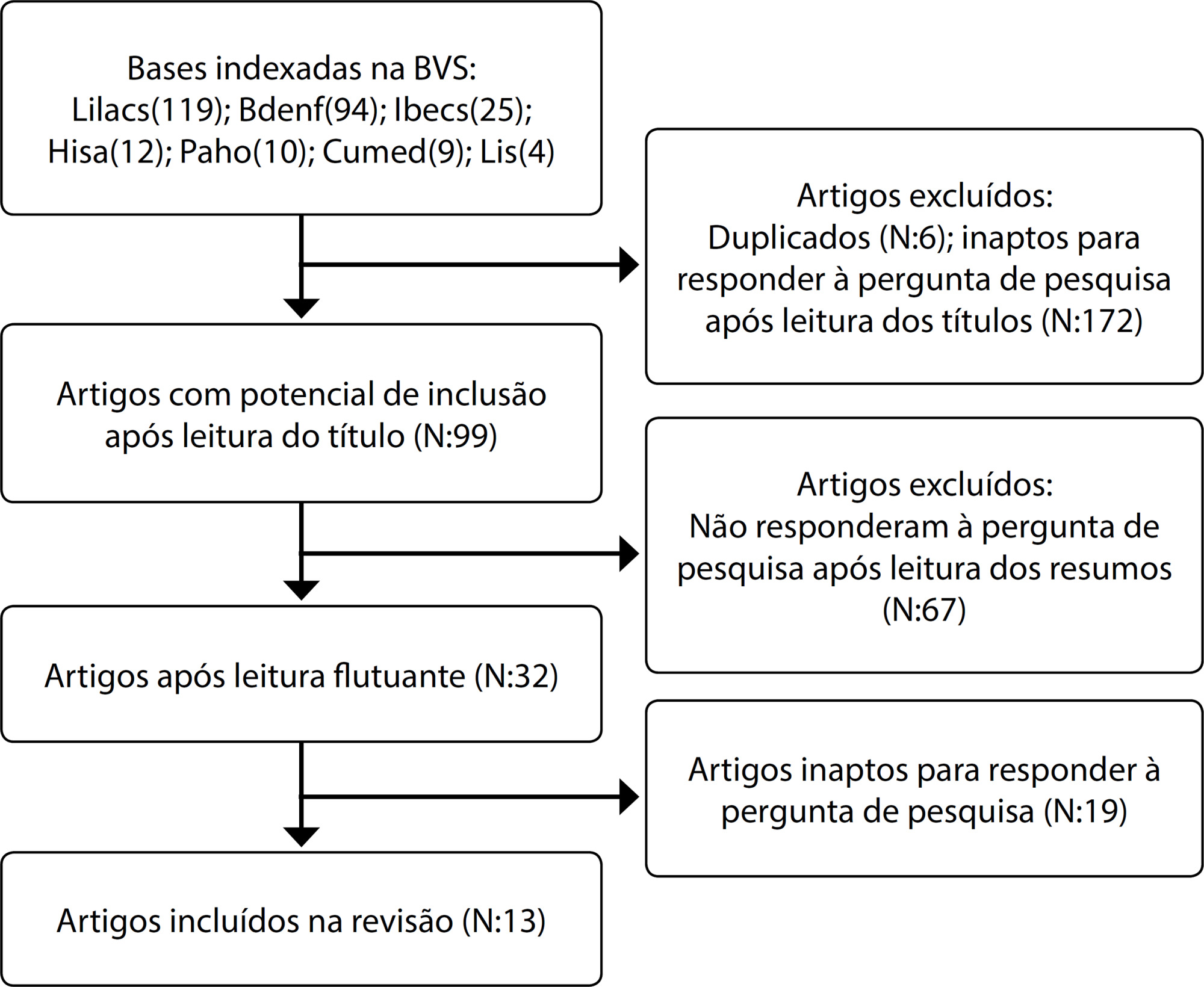-
ARTÍCULO DE REVISIÓN
Brazilian nursing specific situation, middle and micro-range theories: a bibliometric study
Revista Brasileira de Enfermagem. 2024;77(4):e20230520
20/09/2024
Resumo
ARTÍCULO DE REVISIÓNBrazilian nursing specific situation, middle and micro-range theories: a bibliometric study
Revista Brasileira de Enfermagem. 2024;77(4):e20230520
20/09/2024DOI 10.1590/0034-7167-2023-0520
Visualizações0ABSTRACT
Objectives:
to map the nursing theories developed in stricto sensu graduate programs in nursing in Brazil.
Methods:
a bibliometric study, carried out on the Coordination for the Improvement of Higher Education Personnel Theses and Dissertations Portal in October 2023. The controlled descriptors “Nursing Theory” and “Nursing Models” and the uncontrolled descriptors “Theories” and “Middle-Range Theory” were used. Selected studies were cataloged for analysis, which was conducted by the study authors, who have a doctoral degree and expertise in research on nursing theories.
Results:
thirty-nine nursing theories were mapped, with a predominance of middle-range theories (79.5%), focusing on nursing diagnostic concepts and use of the theoretical-methodology strategy of theoretical-causal validity.
Conclusions:
the study identified nursing theories developed in Brazil, recognizing trends, development strategies, theorized objects of disciplinary interest and investments necessary for practical application in Brazilian contexts.
Palavras-chave: BibliometricsHealth Postgraduate ProgramsNursing ModelsNursing ResearchNursing TheoryVer mais
-
ARTÍCULO ORIGINAL
Sociocognitive factors determining compliance with standard precautions by nursing professionals during the COVID-19 pandemic
Revista Brasileira de Enfermagem. 2024;77(4):e20230301
20/09/2024
Resumo
ARTÍCULO ORIGINALSociocognitive factors determining compliance with standard precautions by nursing professionals during the COVID-19 pandemic
Revista Brasileira de Enfermagem. 2024;77(4):e20230301
20/09/2024DOI 10.1590/0034-7167-2023-0301
Visualizações0Ver maisABSTRACT
Objectives:
to assess the socio-cognitive factors determining adherence to standard precautions by nursing professionals in care practice during the COVID-19 pandemic in Brazil.
Methods:
an analytical cross-sectional study, carried out with 9,039 nursing professionals in Brazil, using an electronic form containing participant sociodemographic, training and work variables, and the Brazilian version of the Standard Precautions Questionnaire. Descriptive and inferential statistics were used using the statistical software R.
Results:
participants recognize standard precautions as effective measures to reduce infections and report intention to perform them. Training regarding standard precautions was evidenced as a facilitator of adherence (4.72; SD: 0.73), and problems related to materials (3.78; SD: 1.45) were a hindrance.
Conclusions:
among the determining factors, facilitating organization presented the highest score, followed by intention to perform. Facilitating and hindering factor identification makes it possible to develop intervention strategies to strengthen patient safety and reduce occupational risks among professionals.
-
ARTÍCULO ORIGINAL
Middle-range theory for nursing for care in the context of cardiovascular risk
Revista Brasileira de Enfermagem. 2024;77(4):e20240190
20/09/2024
Resumo
ARTÍCULO ORIGINALMiddle-range theory for nursing for care in the context of cardiovascular risk
Revista Brasileira de Enfermagem. 2024;77(4):e20240190
20/09/2024DOI 10.1590/0034-7167-2024-0190
Visualizações0ABSTRACT
Objectives:
to develop a middle-range nursing theory for care in the context of cardiovascular risk.
Methods:
a theoretical development study, through induction through research and ICNP® practice standards, carried out in six stages: concept analysis; ICNP® terminological subset structuring; theory contextualization and purpose; proposition construction; modeling; and assumption construction.
Results:
the Theory of Care in the Context of Cardiovascular Risk has a middle-range scope, describing care, prescribing actions to promote health and reduce cardiovascular risk. Thirteen propositions were constructed in three categories (nursing metaparadigm, central and factorial concepts), two models and 16 assumptions.
Final Considerations:
the theory contributes to the construction of knowledge arising from the nursing process for care in the context of cardiovascular risk, generating propositions, assumptions and modeling, which will enable theoretical testing.
Palavras-chave: Concept FormationHeart Disease Risk FactorsNursing TheoriesStandardized Nursing TerminologyTheoretical ModelsVer mais
-
ARTÍCULO ORIGINAL
Content validity of guidance on self-care in the post-operative period for breast cancer
Revista Brasileira de Enfermagem. 2024;77(4):e20240188
20/09/2024
Resumo
ARTÍCULO ORIGINALContent validity of guidance on self-care in the post-operative period for breast cancer
Revista Brasileira de Enfermagem. 2024;77(4):e20240188
20/09/2024DOI 10.1590/0034-7167-2024-0188
Visualizações0Ver maisABSTRACT
Objectives:
to validate the content of a guidance guide on self-care in the postoperative period of breast surgery for breast cancer.
Methods:
a methodological study with content validity, carried out with 15 expert nurses and physiotherapists, between May and July 2022. Recruitment took place from the Lattes Platform, using snowball sampling. The level of relevance and representativeness for each item was verified using the Content Validity Index (CVI). It was considered valid when CVI was equal to or greater than 78% (0.78).
Results:
from the initial total of 37 items, two were excluded, as they had insufficient practical relevance and theoretical relevance, and another five items which, although presenting a CVI lower than the established cut-off, were suggested to be rewritten and grouped with other similar items.
Conclusions:
thirty items were considered valid and demonstrated important and significant characteristics, constituting suitable material for application in clinical practice.
-
ARTÍCULO ORIGINAL
Construction and enhancement of a prototype for a medical-hospital equipment for hypodermoclysis: a qualitative study
Revista Brasileira de Enfermagem. 2024;77(4):e20240059
20/09/2024
Resumo
ARTÍCULO ORIGINALConstruction and enhancement of a prototype for a medical-hospital equipment for hypodermoclysis: a qualitative study
Revista Brasileira de Enfermagem. 2024;77(4):e20240059
20/09/2024DOI 10.1590/0034-7167-2024-0059
Visualizações0ABSTRACT
Objectives:
to construct a Subcutaneous Hydration Device semi-functional prototype and gather initial information to improve this prototype design and realize its acceptance potential.
Methods:
a qualitative, descriptive and exploratory study, which used focus group, following the Technology Acceptance Model. The group was held at the Escola Superior de Enfermagem de Coimbra, Portugal, in December 2022, composed of nine participants from six different disciplinary areas, and followed thematic analysis.
Results:
four topics emerged associated with the device components: elastomeric infusion pump; needle/access device; clamp; administration set. From these topics, topics were triggered that highlighted: characteristics about the target population; ease of use and accessories; patient comfort and safety; and device application context.
Final Considerations:
the Subcutaneous Hydration Device semi-functional prototype is viable and interesting for the clinic. The results support its improvement and direct future investments for experimental studies.
Palavras-chave: Equipment and SuppliesHypodermoclysisInfusionsSubcutaneousTechnologyUser-Centered DesignVer mais
-
ARTÍCULO ORIGINAL
Middle-range theory of the existential dimension of being-in-the-world of chronic kidney disease: Grounded Theory
Revista Brasileira de Enfermagem. 2024;77(4):e20230152
20/09/2024
Resumo
ARTÍCULO ORIGINALMiddle-range theory of the existential dimension of being-in-the-world of chronic kidney disease: Grounded Theory
Revista Brasileira de Enfermagem. 2024;77(4):e20230152
20/09/2024DOI 10.1590/0034-7167-2023-0152
Visualizações0Ver maisABSTRACT
Objectives:
to develop a middle-range theory of the existential dimension of being-in-the-world of chronic kidney disease in the light of humanistic nursing theory.
Methods:
exploratory-descriptive, qualitative, Grounded Theory study, whose guiding question was: what theoretical relationships can be established between clinical practice carried out in the context of renal replacement therapies and the concepts of humanistic nursing theory? Data were collected through semi-structured interviews with nursing staff and chronic kidney disease patients.
Results:
a theory was developed that describes and explains the existential dimension of being-in-the-world of chronic kidney disease, identifying the qualitative evidence present in this context.
Final Considerations:
the theory contributes to clinical nursing practice qualification in nephrology, consolidating nursing as an art and science, because it arises from care practice and research, in addition to rescuing what differentiates it within the health disciplines, which is care par excellence.

-
ARTÍCULO ORIGINAL
Transgender people’s knowledge about the adverse effects of cross-hormonization: challenges for nursing
Revista Brasileira de Enfermagem. 2024;77(4):e20230346
20/09/2024
Resumo
ARTÍCULO ORIGINALTransgender people’s knowledge about the adverse effects of cross-hormonization: challenges for nursing
Revista Brasileira de Enfermagem. 2024;77(4):e20230346
20/09/2024DOI 10.1590/0034-7167-2023-0346
Visualizações0Ver maisABSTRACT
Objectives:
to identify trans women’s and men’s knowledge about the adverse effects of cross-hormonization and understand the repercussions of hormonization practices on trans women’s and men’s health.
Methods:
exploratory, descriptive, qualitative research, developed with 41 participants, from July 2019 to February 2020, in a trans health outpatient clinic. Thematic-categorical content analysis was used.
Results:
from the analysis, the categories emerged: Knowledge about the adverse effects of cross-hormonization; and Cross-hormonization practices and their meaning.
Final Considerations:
nursing practices, based on the identification of knowledge about adverse effects and the understanding of cross-hormonization practices in trans women’s and men’s health, can result in more inclusive care.
-
EDITORIAL
Potencial de la Inteligência Artificial en la Práctica de Enfermería Basada en la Evidencia
Revista Brasileira de Enfermagem. 2024;77(5):e770501
09/09/2024
Resumo
EDITORIALPotencial de la Inteligência Artificial en la Práctica de Enfermería Basada en la Evidencia
Revista Brasileira de Enfermagem. 2024;77(5):e770501
09/09/2024DOI 10.1590/0034-7167.2024770501es
Visualizações0La práctica basada en la evidencia (PBE) se ha consolidado como un pilar fundamental en enfermería, impulsando una toma de decisiones clínicas eficaz basada en investigaciones científicas de alta calidad. El objetivo principal de la PBE es garantizar que los pacientes reciban la atención más adecuada y segura, basada en la mejor evidencia disponible. En […]Ver mais
-
ARTÍCULO ORIGINAL
Avaliação do desempenho do escore de alerta precoce modificado em hospital público brasileiro
Revista Brasileira de Enfermagem. 2019;72(6):1428-1434
21/10/2019
Resumo
ARTÍCULO ORIGINALAvaliação do desempenho do escore de alerta precoce modificado em hospital público brasileiro
Revista Brasileira de Enfermagem. 2019;72(6):1428-1434
21/10/2019DOI 10.1590/0034-7167-2017-0537
Visualizações0RESUMO
Objetivo:
Avaliar o desempenho do escore de alerta precoce modificado (Mews) em uma enfermaria de pacientes em deterioração clínica.
Método:
Trata-se de um estudo analítico, quantitativo e preditivo. Os parâmetros do Mews (pressão arterial sistólica, frequência cardíaca, frequência respiratória, temperatura e nível de consciência) foram avaliados de 6 em 6 horas. Os seguintes eventos foram registrados: óbito, parada cardiorrespiratória e transferência para terapia intensiva. As avaliações foram realizadas em um hospital de referência do interior do estado de São Paulo.
Resultados:
Foram incluídos 300 pacientes (57 ± 18 anos, sexo masculino: 65%). Observou-se número crescente de eventos combinados de acordo com o maior valor do escore (00%; 00%; 01%; 09%; 19%; 28%; 89%, respectivamente, para os Mews 0; 1; 2; 3; 4; 5 e 6; p < 0,0001). Mews ≥ 4 foi o ponto de corte mais adequado para predição destes eventos (sensibilidade: 87%, especificidade: 85% e acurácia: 0,86).
Conclusão:
Mews mensura adequadamente a ocorrência de eventos graves em pacientes hospitalizados em enfermaria de um hospital público brasileiro. Mews ≥ 4 parece ser o ponto de corte mais adequado para predição destes eventos.
Palavras-chave: Cuidados CríticosCuidados de EnfermagemEquipes de Resposta Rápida de HospitaisEscores de Disfunção OrgânicaMedicina de EmergênciaVer mais
-
ARTÍCULO ORIGINAL
Biossegurança dos profissionais de enfermagem no enfrentamento da COVID-19
Revista Brasileira de Enfermagem. 2022;75:e20201104
18/10/2022
Resumo
ARTÍCULO ORIGINALBiossegurança dos profissionais de enfermagem no enfrentamento da COVID-19
Revista Brasileira de Enfermagem. 2022;75:e20201104
18/10/2022DOI 10.1590/0034-7167-2020-1104
Visualizações0RESUMO
Objetivo:
investigar a biossegurança dos profissionais de enfermagem no enfrentamento da COVID-19.
Métodos:
trata-se de estudo do tipo Survey. Os profissionais de enfermagem foram convidados via aplicativo de mensagens, utilizando formulários de coleta de dados autoaplicáveis. A seleção amostral (n=693) foi do tipo não probabilística. Realizou-se a análise descritiva dos dados.
Resultados:
considerando os aspectos da biossegurança no enfrentamento da COVID-19, 79,0% dos pesquisados não receberam treinamentos ou consideraram-nos insuficientes, 69,3% relataram a falta de equipamento de proteção individual nos serviços e 81,8% não se sentiram seguros com as adequações dos fluxos internos para o atendimento de casos da COVID-19.
Conclusão:
observam-se a necessidade de treinamento contínuo e efetivo da equipe de enfermagem e a disponibilidade de equipamentos de proteção individual, além da necessidade de adequações dos fluxos internos para o atendimento de casos suspeitos ou confirmados da doença.
Palavras-chave: BiossegurançaContenção de Riscos BiológicosEnfermagemEnfrentamentoInfecções por CoronavirusVer mais -
ARTÍCULO DE REVISIÓN
O uso de histórias infantis no cuidado de enfermagem à criança: revisão integrativa
Revista Brasileira de Enfermagem. 2019;72:333-342
13/12/2019
Resumo
ARTÍCULO DE REVISIÓNO uso de histórias infantis no cuidado de enfermagem à criança: revisão integrativa
Revista Brasileira de Enfermagem. 2019;72:333-342
13/12/2019DOI 10.1590/0034-7167-2018-0456
Visualizações0Ver maisRESUMO
Objetivo:
Identificar como as histórias infantis podem ser utilizadas no cuidado à criança.
Método:
Revisão integrativa da literatura, realizada em bases de dados, entre 2000 e 2018, em três idiomas. Foram incluídos artigos de pesquisa disponíveis na íntegra e que estavam de acordo com a seguinte questão: “Como as histórias infantis podem ser utilizadas no cuidado à criança?”.
Resultados:
A partir da análise de 16 artigos selecionados, emergiram três categorias: O uso de histórias no hospital; Intervenção de enfermagem especializada; e Histórias na dimensão educativa.
Considerações finais:
As evidências apontam benefícios às crianças, às famílias, às instituições e à Enfermagem. O uso de histórias infantis como intervenção de cuidado pode ocorrer em diferentes situações e cenários, valoriza e estimula vínculos, reduz ansiedade das crianças e familiares, estimula a participação das crianças no cuidado, e promove educação em saúde. É uma estratégia de baixo custo e ainda incipiente na Enfermagem.

-
INFORME DE EXPERIENCIA
Use of webQDA software on qualitative nursing research: an experience report
Revista Brasileira de Enfermagem. 2020;73(3):e20180411
03/04/2020
Resumo
INFORME DE EXPERIENCIAUse of webQDA software on qualitative nursing research: an experience report
Revista Brasileira de Enfermagem. 2020;73(3):e20180411
03/04/2020DOI 10.1590/0034-7167-2018-0411
Visualizações0Ver maisABSTRACT
Objectives:
to report the user experience of the webQDA software in the support of qualitative data analysis about health literacy of older adults.
Methods:
quasi-experimental research developed from January 2014 to January 2015, with 118 older adults, all of whom were interviewed to assess the level of health literacy. Interviews were carried out before and after four educational interventions, according to Freire’s method named Culture Circle. The interviews were transcribed and entered in the software, which highlighted the analytical categories.
Results:
the systems of sources, interpretative encoding and questioning of the data available in the software allowed the construction of three categories for the literacy levels and four categories for their dimensions.
Final considerations:
We concluded that the webQDA software enables the structured encoding of qualitative materials, ensuring faster and effective management of data with systematization and analytical transparency.

-
ARTÍCULO ORIGINAL
O cuidado da enfermeira à dimensão espiritual da pessoa idosa hospitalizada
Revista Brasileira de Enfermagem. 2019;72:236-242
05/12/2019
Resumo
ARTÍCULO ORIGINALO cuidado da enfermeira à dimensão espiritual da pessoa idosa hospitalizada
Revista Brasileira de Enfermagem. 2019;72:236-242
05/12/2019DOI 10.1590/0034-7167-2018-0685
Visualizações0Ver maisRESUMO
Objetivo:
analisar o cuidado da enfermeira à dimensão espiritual da pessoa idosa hospitalizada.
Método:
estudo qualitativo, fundamentado na Teoria do Cuidado Humano Transpessoal de Jean Watson. Fizeram parte do estudo 17 enfermeiras que trabalham em um centro geriátrico de Salvador, Bahia, Brasil. A coleta de depoimentos ocorreu entre janeiro e abril de 2018, através de entrevista.
Resultados:
os cuidados espirituais desvelados foram: diálogo, estímulos e respeito às atividades religiosas, acolhimento, empatia. Um dos obstáculos à prestação desses cuidados foi o despreparo em acessar a dimensão espiritual da pessoa idosa.
Considerações finais:
a espiritualidade é uma dimensão do cuidado humano e holístico de enfermagem. Cuidar do espírito contribui para fomentar o cuidado transpessoal. A dificuldade pode estar na falta de preparo de enfermeiras e enfermeiros, sendo necessário que cultivem e vivam sua própria espiritualidade, transmitindo a compreensão em cada relação de cuidado.
-
ARTÍCULO ORIGINAL
Creation and validation of a visual educational technology content for lactation physiology learning
Revista Brasileira de Enfermagem. 2020;73(6):e20190564
07/09/2020
Resumo
ARTÍCULO ORIGINALCreation and validation of a visual educational technology content for lactation physiology learning
Revista Brasileira de Enfermagem. 2020;73(6):e20190564
07/09/2020DOI 10.1590/0034-7167-2019-0564
Visualizações0ABSTRACT
Objective:
to create and validate a visual educational technology content for lactation physiology learning.
Method:
a methodological study that contemplated the stages of content creation and validation guided by the conceptual model of Knowledge Translation into action. The creation took place in partnership with the educational technology center of the project’s home institution. The validation was attended by 27 judges with experience in the obstetric, neonatal, pediatric or maternal and child areas and in the theme of breastfeeding.
Results:
an educational technology covered animation and video techniques to locate, respectively, elements of lactation physiology and the population involved. An Overall Content Validity Index of 0.84 was obtained.
Conclusion:
the visual educational technology for lactation physiology learning has been validated in content as a tool to introduce the theme and mediate health education actions that can have a positive impact on breastfeeding.
Palavras-chave: Audiovisual ResourcesEducational TechnologyHealth EducationLactationTranslational Medical ResearchVer mais
-
ARTÍCULO DE REVISIÓN
Historicidade da pós-graduação em enfermagem no Brasil: uma análise da sociologia das profissões
Revista Brasileira de Enfermagem. 2021;74(6):e20190827
20/08/2021
Resumo
ARTÍCULO DE REVISIÓNHistoricidade da pós-graduação em enfermagem no Brasil: uma análise da sociologia das profissões
Revista Brasileira de Enfermagem. 2021;74(6):e20190827
20/08/2021DOI 10.1590/0034-7167-2019-0827
Visualizações0RESUMO
Objetivos:
analisar as produções científicas acerca da história da pós-graduação em enfermagem brasileira à luz da Sociologia das Profissões de Eliot Freidson.
Métodos:
revisão integrativa, realizada nas bases indexadas na Biblioteca Virtual da Saúde. Seguiram-se as recomendações da Preferred Reporting Items for Systematic Reviews and Meta-Analyses. Adotaram-se a Análise de Conteúdo Temática e as concepções de Eliot Freidson.
Resultados:
elencaram-se duas categorias: “Institucionalização da pós-graduação em enfermagem brasileira”, ressaltando o processo histórico da profissionalização da enfermagem pela transição de um cuidado empírico para o profissional, subsidiado pelo monopólio da construção de saber próprio; “A produção científica da pós-graduação em enfermagem no Brasil”, evidenciando o fortalecimento da nova geração de enfermeiros pesquisadores no país, visto a maior cientificidade no ensino pela implantação da pós-graduação.
Considerações Finais:
as análises apresentam a historicidade da institucionalização da pós-graduação subsidiando a compreensão dos delineamentos da profissionalização da enfermagem brasileira.
Palavras-chave: BrasilEducação de Pós-Graduação em EnfermagemEnfermagemHistória da EnfermagemRevisãoVer mais
-
ARTÍCULO ORIGINAL
Risk of suicide among nursing students
Revista Brasileira de Enfermagem. 2021;74(6):e20200867
20/08/2021
Resumo
ARTÍCULO ORIGINALRisk of suicide among nursing students
Revista Brasileira de Enfermagem. 2021;74(6):e20200867
20/08/2021DOI 10.1590/0034-7167-2020-0867
Visualizações0Ver maisABSTRACT
Objectives:
to identify the risk and degree of risk of suicide in nursing students of a public institution in the countryside of Pernambuco, Brazil.
Methods:
this was a cross-sectional, quantitative research conducted with 150 students. For data collection, a sociodemographic questionnaire and the instrument, M.I.N.I. – Brazilian version 5.0.0 – Module C – Risk of suicide were used. Statistical analyses were performed with IBM(® )SPSS(®), version 23.
Results:
53.3% of nursing students had a risk of suicide, of which 20.7% had a high risk. Moreover, 22.67% reported previous suicide attempt. It is noteworthy that students without a partner have a higher risk of suicide (56.8%) than those with a partner (29.4%).
Conclusions:
it is perceived the need to develop programs that identify students at risk of suicide in higher education institutions, in order to raise awareness of the problem and implement policies to promote mental health in the academia.
Búsqueda
Buscar en:
Nuvem de Tags
Adolescente (85) Atenção Primária à Saúde (239) COVID-19 (91) Criança (91) Cuidados de Enfermagem (269) Educação em Enfermagem (151) Educação em Saúde (139) Enfermagem (930) Enfermagem Pediátrica (86) Estudantes de Enfermagem (77) Estudos de Validação (131) Família (87) Idoso (208) Promoção da Saúde (99) Qualidade de Vida (104) Saúde do Trabalhador (86) Saúde Mental (145) Saúde Pública (82) Segurança do Paciente (150) Tecnologia Educacional (100)



